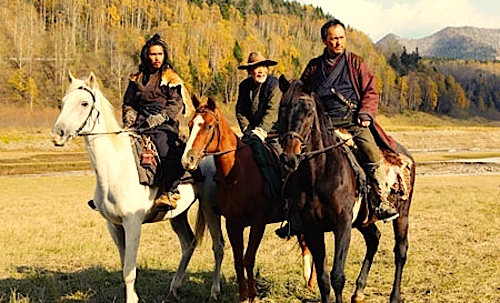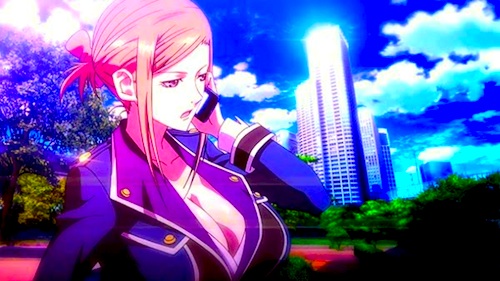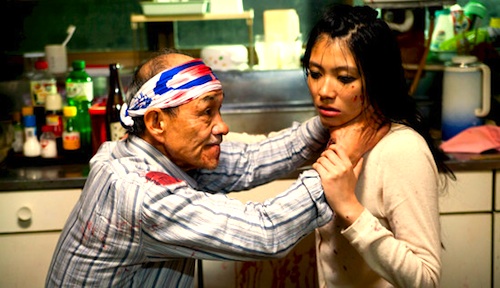By Joe Bendel. For Jubei Kamata, it is the end of an era—the Tokugawa Era. The former samurai-assassin used to kill with impunity and then he simply killed to stay alive, but he gave up killing at the behest of his beloved late wife. However, killing is a skill you never forget. Reluctantly, Kamata digs up his sword for a final violent errand in Sang-il Lee’s Unforgiven, an inspired cross-cultural remake of Clint Eastwood’s Oscar-winning western, which screened during this year’s Japan Cuts: the New York Festival of Contemporary Japanese Film.
In a remote frontier village on Hokkaido Island, two ranchers brutally disfigure Natsume, a young prostitute. Rather than prosecute them, local police chief Ichizo Oishi merely requires the former samurai pay restitution to the brothel owner. Outraged by his callous disregard for Natsume’s suffering, her fellow prostitutes pool their money to place a bounty on the offending settlers.
Old Kingo Baba intends to collect that bounty, so he tries to recruit his old samurai comrade Kamata, a.k.a. “Jubei the Killer.” Already haunted by his past carnage, Kamata dearly wishes to keep his promise renouncing violence. Unfortunately, a disastrous harvest leaves him no other option to provide for his young son and daughter. Soon, Kamata and Baba are joined by Goro Sawada, an impulsive would-be outlaw, who also happens to be half Ainu (the indigenous people of Hokkaido and Sakhalin). As it happens, Kamata’s late wife was also Ainu, giving the two men a distant kinship and a shared outage at the Meji government’s repression of Ainu customs.
Arguably, the Ainu element further deepens the Unforgiven story beyond the Eastwood’s revisionist critique of a violent, misogynistic American west. Closely paralleling the original, Lee’s adaptation perfectly fits within the rough and tumble early Meiji northern provinces, where many former Shogunate ronin sought refuge.

Ken Watanabe (who starred in Eastwood’s Letters from Iwo Jima) is impressively hard-nosed and world weary standing in for his former director. Akira Emoto’s nervous energy playing Baba is a bit of a departure from Morgan Freeman’s analog, but it works well in context. Koichi Sato is smoothly fierce in the Hackman mold and Shiori Kutsuna is devastating as the disfigured (but still beautiful) Natsume. Yet, it is evidently still hard to get the balance of exuberance and angst right for Sawada/the Schofield Kid.
Cinematographer Norimichi Kasamatsu gives the Hokkaido vistas the full John Ford treatment, while Lee invests the action sequences with a tragically operatic vibe. It is a gritty period production that represents a triumph return to the tradition of Jidaigeki films and westerns riffing and channeling each other. Frustratingly, it is also a reminder of how rare the contemporary western has become in Hollywood, even though Japanese cinema continues to find creative grist in its national history. Highly recommended for fans of moody westerns and samurai films, Unforgiven screened as part of the 2014 Japan Cuts.
LFM GRADE: A-
Posted on July 17th, 2014 at 9:48am.


